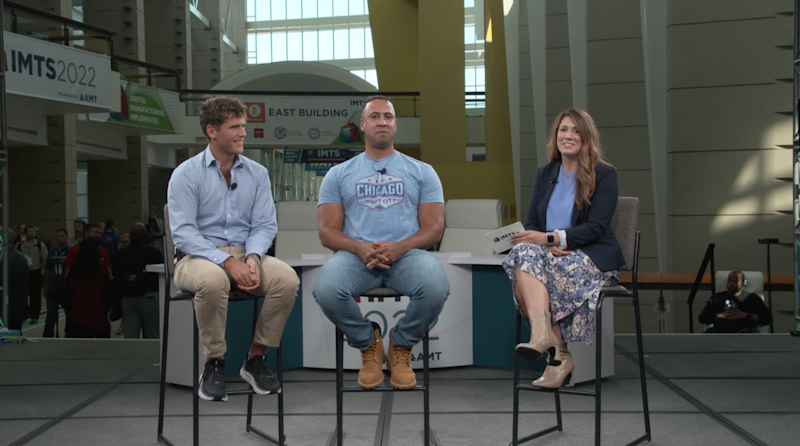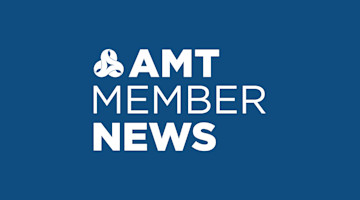Say "skills gap" or "labor shortage" to anyone in manufacturing and their mind goes straight to some of the most baffling, frustrating statistics about one of the sector's most intractable challenges. To wit, "Today, there's twice as many job openings as there are hires," said Jacob Ruttenberg, general partner at Tinicum Venture Partners. "Half of all manufacturing jobs remain unfilled. That's the first time in this century that it's happened."
Similarly, as familiar as everyone is with the problem, they’re just as familiar with the solutions. "The narrative around manufacturing needs to change. There needs to be a public education campaign," said Darnell Epps, cofounder of Thurgood Industries. "Not everybody wants a liberal arts degree or to incur the tremendous debt to go to college. People want options."
What Ruttenberg and Epps think needs to change — what brought them together on the) during their discussion, “” at IMTS 2022 in September — isn’t so much about message as it is about audience. Put another way, it's not what you're saying; it's who you're saying it to.
"Black unemployment in our big cities is extraordinarily high, yet there's very little outreach and recruitment in communities of color throughout our big cities," Epps said. "In Philly, LA, NYC...black unemployment in February was above 15%. In Detroit it was about 20%. More could be done with regard to the industry and with trade schools in focusing on those populations that have been underserved and have historic levels of unemployment and underemployment."
"How do we take those communities and give them the work that they crave and then match that with an industry that needs the work?" Ruttenberg asked, noting that this question — this approach to solving the labor shortage — is not a novel concept. He pointed to Texas and the green energy space as an example.
"Here we have a state that's highly reliant on fossil fuels as a source of state activity...and you've seen the effort to retrain the workers to work in solar fields and wind turbines," he said. "It's been effective...why can't we do the same in manufacturing?"
Ruttenberg and Epps went on to discuss ways that companies can innovate to solve their own labor issues, how firms can tailor their recruitment efforts to different audiences, and how education can keep up with the speed of innovation. Watch their on IMTS+ to learn more.








